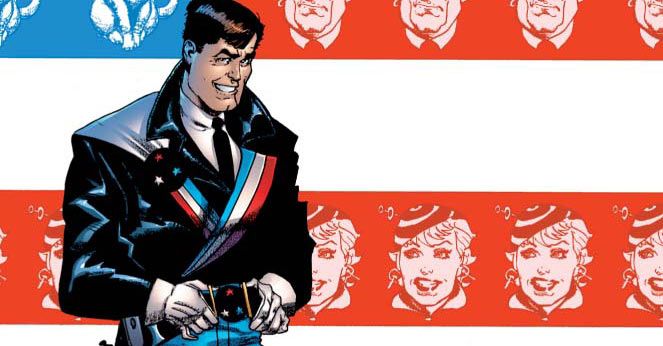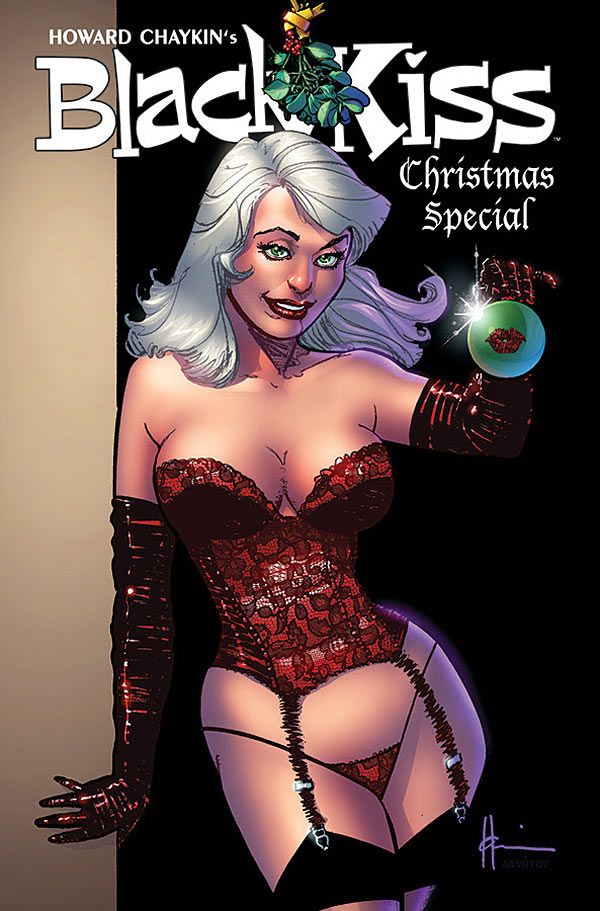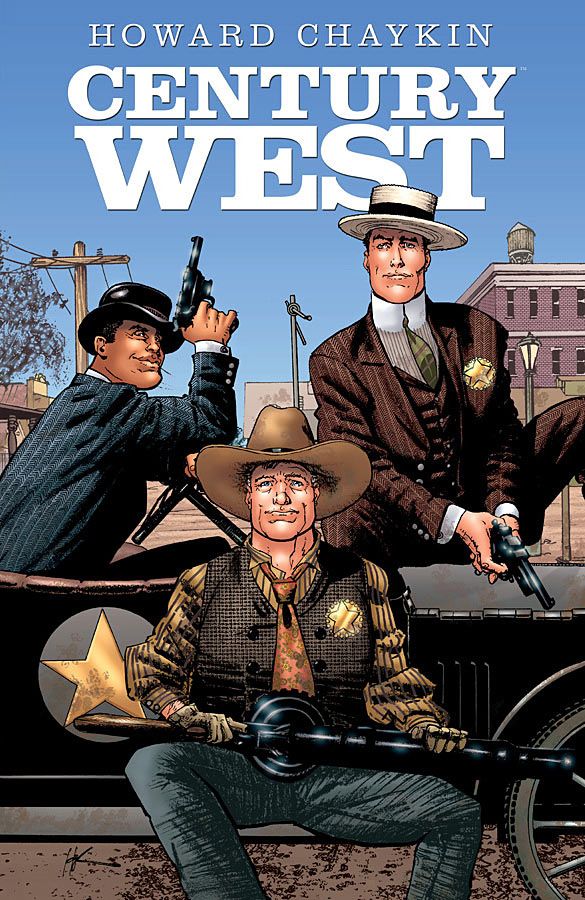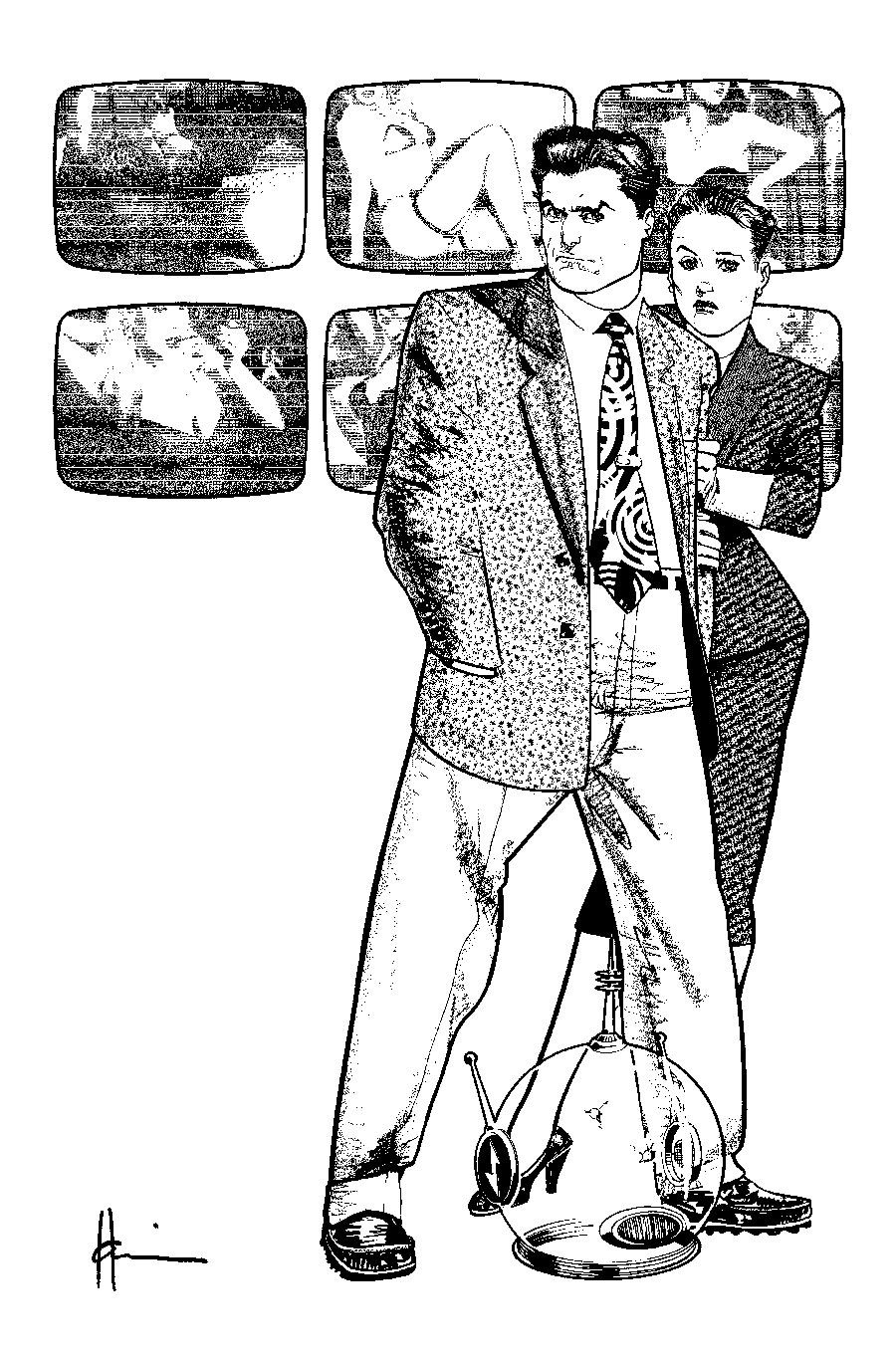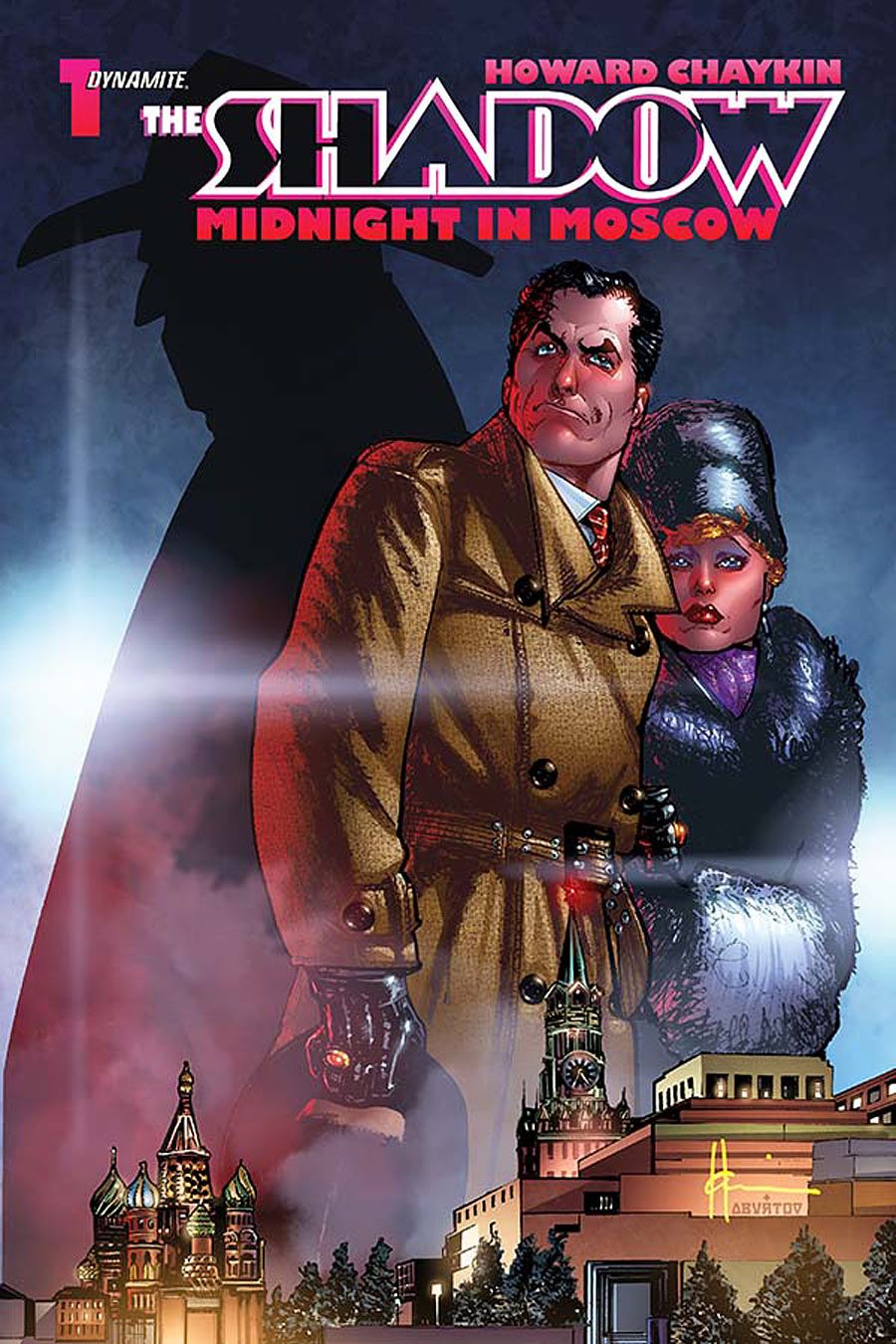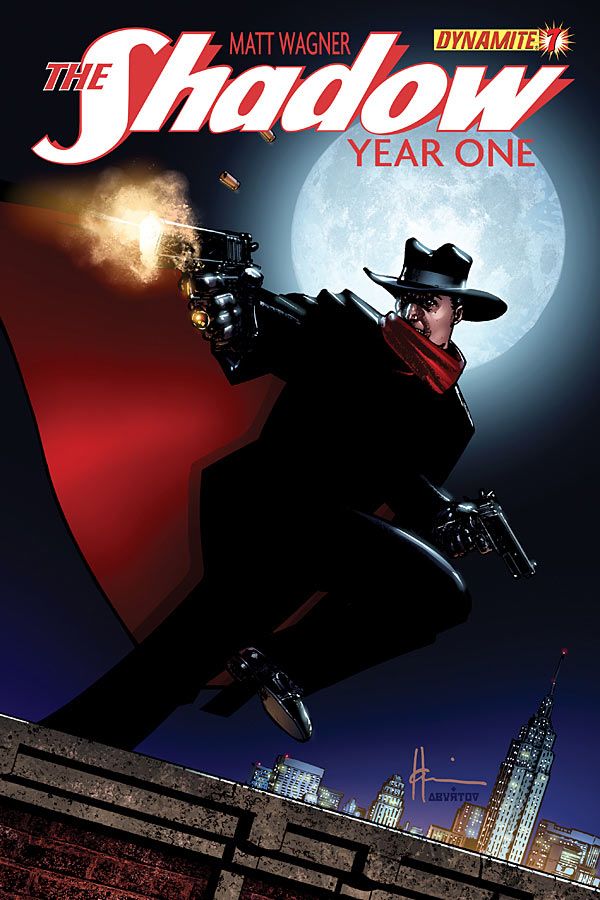Although veteran writer/artist Howard Chaykin arrived almost fifteen minutes late to his own spotlight panel at Special Edition: NYC, he began the discussion almost immediately upon walking into the room, with no moderator and no warning.
He quickly proved himself to be a dynamic public speaker, proclaiming, "I spent years teaching myself not to care what you think, and I recommend you do the same."
"I often describe myself as the Van Morrison of comic books," he said later. "In that I'm a cult figure who's held in higher esteem by his colleagues than by the enthusiasts."
Chaykin went on to explain that comic book enthusiasts are living in an interesting time, in which what was once a "small club that nobody knew about" is now being "shoved to the side by a bunch of douche bags that make a great deal of money off of our tastes. And that really pisses me off."
The writer/artist told the audience he's not a fan of being asked who his favorite characters or companies are. "You're reducing the material, in my opinion," said Chaykin. "It's important to note that the men who are long-lived in the context of comic book careers are brands. People like Bernie Wrightson, like Jack Kirby, like Walter Simonson, like Neal Adams. There's a level of expectation built into those names -- I don't really care what those men produce, what characters they're working on. It's what they bring to the material that interests me."
RELATED: Chaykin Shares a "Black Kiss" Under the Misteltoe
He then asked if anyone had "any questions that I can ramble on for 15 minutes with? Or are you all just going to be chicken shit about this?" prompting laughter from the audience.
After sharing his feelings about the prominence of "fraudulent" personalities pervading the comic book industry, Chaykin described his experience of "leaving behind obscene amounts of cash" while working in television in the '90s to return to a career comic books in the early 2000s. "(It) was an exciting and intriguing experience, because I had no idea if I could still draw. It turned out that my chops were in great shape, even better than I imagined, and I had developed a confidence that I had never seen before.
"Like I said, I spent an enormous amount of energy and time learning not to care about what you think."
Likening the business of comics books to a pendulum, Chaykin said that "comics in the '90s were profoundly shitty -- they were dreadfully cynical exercises in whorish crap," once again giving way to laughter from the audience. "I'm frequently called a cynic, and that's by people that don't understand the difference between cynicism and skepticism."
During his television adventures, the renowned comic creator was "ashamed to admit" he had a relationship with comic books "because they were just so shitty. Those of you that came of age at that time, your expectation of comics has to be perverse and bizarre."
"When I came back to comics in the early oughts, I did a great of research, because I believe in contempt with investigation. I'm very analytical -- I come from a generation of very talented men, and I'm the least talented and least gifted of those men -- I couldn't compete," said Chaykin. "If you're willing to put your ego aside and reinvent yourself every five, six, seven years, you can survive and thrive -- I've been working with comics for 42 years, and I'm competing with people whose parents I'm older than. And it's an incredible joy. The only man of my generation that's still producing work that's not a parody of itself is Walter Simonson. Simonson's doing amazing work."
Returning to his "pendulum" metaphor, Chaykin expressed that the pendulum has swung from a "visual sensibility" to more of a "writer's business." "It's insane! We're a visual medium, for Christ's sake!"
Chaykin told his fans that he recently spent three days with Marvel at a "boot camp," which he does twice a year. "I am invited to come in and beat the shit out of five young guys -- because they're identified as not working up to potential in one way or another." He said that, for the first time, he wasn't dealing with deadline issues, but rather was called in to speak to them about the "language, syntax, and vocabulary" of comics.
RELATED: Howard Chaykin Saddles Up for "Century West"
He encouraged these artists to reclaim the idea that the artists are the ones doing the "heavy lifting" of comic book creation. "I have a terrible feeling that most people who read comic books have absolutely no idea what goes into making them -- the writing in comics is done mostly by artists, and I'm not talking about the words, because the language of comics is a visual vocabulary." "They have no idea!" he said of most comics criticism, which is largely literary.
As the question and answer portion of the panel began, Chaykin eschewed the usual microphone setup and instead walked into the audience and asked for questions directly. The first query came from a critic who wanted to know how he could better address visual elements in his reviews.
"You've got to be educated," Chaykin answered. "It is imperative, from a literary perspective, that you understand the paradigm of the page."
The next audience member wanted to know what informed Chaykin's unique use of textures.
"Roy Crane? Anyone?" Chaykin polled the audience, as very few hands went up. "One of the most ignored giants in comics." Chaykin said he was "obsessed" with texture, which comes from having been "a serious drug enthusiast when I was a younger man."
Chaykin also said he loves drawing parties in his works. "I love fashion. I've been a subscriber to 'GQ' since 1971, back when it was a homosexual magazine -- I like drawing people in clothing."
An eleven year-old boy asked the next question: "People are encouraging more censorship. What are your views on making more censored books?"
"I believe that superhero comics are by nature children's fiction," Chaykin said. "the idea of a man or woman dressing up in these goofy outfits and going out and fighting crime is absurd."
He took issue with Batman in particular. "Batman, at its core, is about a guy that had a bad day when he was eight, and we've been paying for it ever since. He's a guy who, with his billions of dollars, instead of investing in the public sector and private sector, uses all of his million dollars to buy bondage outfits and really cool things to beat the shit out of people that he doesn't know but knows are bad because that's the way they look. Like Jews in Germany. That said, I have so vicious an objection to censorship that it makes me really creepy and uncomfortable."
He went on to explain that he is "astonished" by the way that some creators have made superheroes into "adult affairs."
Acknowledging that his own resume has a significant amount of superhero material, the artist defended his choices by saying, "That's what they gave me! We do the work we get."
The next fan asked Chaykin about his thoughts on digital comics. "When I hear digital, I hear 'pirate,'" adding that he doesn't draw with digitization in mind. "It has nothing to do with what I do."
Chaykin later named three books he believes belongs on every comic book reader's shelf: "It's Superman" by Tom De Haven, "Men of Tomorrow" by Gerard Jones, and "The Amazing Adventures of Kavalier and Clay" by Michael Chabon.
RELATED: Fraction Reaches for the Stars with "Satellite Sam"

A fan of Chaykin's run on "The Shadow" asked about the practice of "revamping" characters, and the challenges that continuity adds to nostalgia. "I think no stalgia is good stalgia. I don't really care about it." That said, Chaykin admitted to caring a great deal about authenticity in period pieces.
Asked abouthis notion of using panel space as time, Chaykin said, "The size of a panel dictates -- in my opinion; I could be wrong but not likely -- the amount of time involved in the action and event that takes place in that panel."
"I have a real aversion to anachronisms," Chaykin said when asked about his use of research. "I hate them. They take me out of shit."
The final question was from a fan who wanted to know about the reference Chaykin uses in his current series, "Satellite Sam." Chaykin listed a number of different sources including "Amusing Ourselves to Death" by Neil Postman. "Visually speaking, I have so many fashion magazines dating back to the 1930s."
Chaykin ended the panel on a positive note before dismissing his fans: "I want to thank you all. 'A' for your patience, 'B' for your attention, and your enthusiasm. Thank you."

